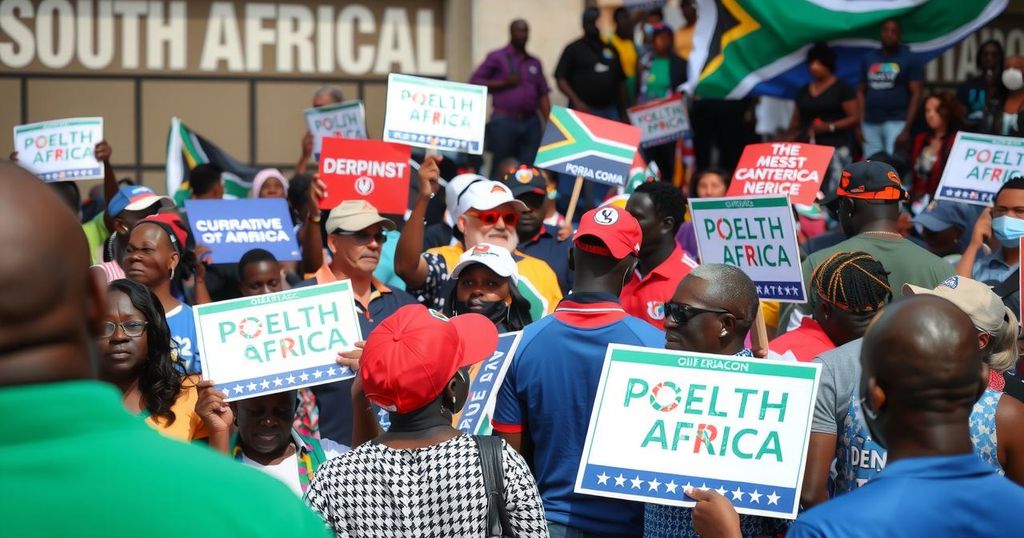SACP Announces Independent Contestation for 2026 Local Elections

The SACP has decided to run independently in the 2026 local elections, distancing itself from the ANC following the latter’s alliance with the DA and facing a historic electoral low. This shift underscores the SACP’s concerns about neoliberalism and aims to reinvigorate leftist politics to address deep-rooted socio-economic issues in South Africa.
The South African Communist Party (SACP) has announced its decision to participate in the 2026 local government elections independently, marking a significant departure from its longstanding alliance with the African National Congress (ANC). This pivot was solidified at the SACP’s recent Special National Congress, occurring in light of the ANC’s controversial collaboration with the Democratic Alliance (DA) in a Government of National Unity (GNU) after the ANC’s disappointing electoral performance, which saw it secure only 40% of the vote—its lowest since the 1994 democratic transition. The SACP, alongside its trade union ally COSATU, has expressed concerns over the ANC’s shift towards neoliberal policies, which they believe have failed to adequately address the socio-economic challenges resulting from apartheid and colonial legacies.
In South Africa, the political landscape has been dramatically affected by the historical context of apartheid and the struggles for equality and economic justice. The ANC, once a liberation movement, has faced criticism for its inability to tackle high levels of poverty and unemployment effectively. The SACP’s alliance with the ANC has been strained due to perceived neoliberal tendencies within the ANC leadership, culminating in the party’s decision to contest elections separately. This decision reflects broader disillusionment among the electorate, notably among marginalized communities, who see little change despite participating in the democratic process since 1994.
The SACP’s strategic shift to contest the 2026 elections independently signals a critical juncture in South African politics, highlighting deepening frustrations over the ANC’s trajectory. As the SACP aims to rejuvenate leftist politics and advocate for marginalized voices, the challenge remains to reshape public sentiment and rekindle voter participation in a democracy that many perceive as failing them. The SACP’s engagement in the upcoming elections promises to influence the traditional dynamics of South African governance, particularly amidst growing calls for a renewed focus on economic and social equity.
Original Source: cpusa.org







